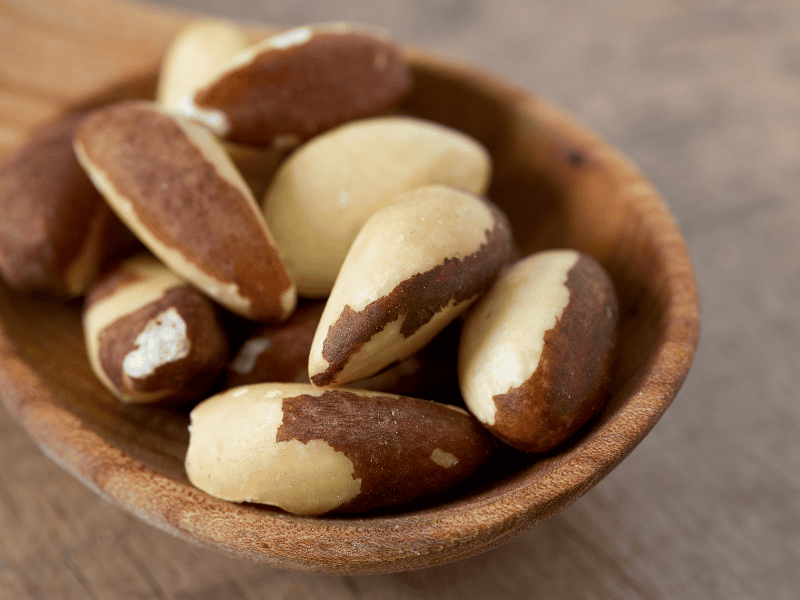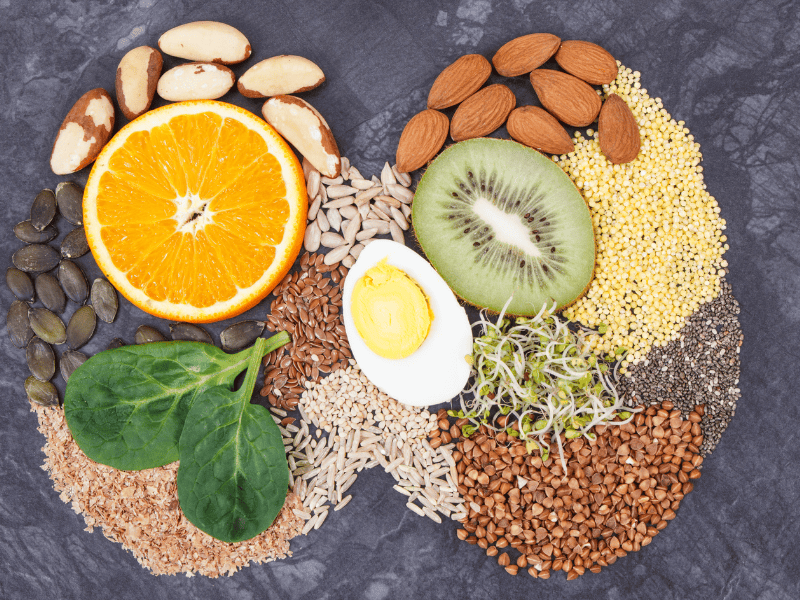In today’s age of information overload, it’s easy to feel overwhelmed, especially when it concerns your well-being. If you’ve been diagnosed with hypothyroidism or suspect you might have it, understanding which foods can be beneficial and which ones to avoid can significantly support your thyroid health. Here’s a comprehensive guide to foods for hypothyroidism to help you make the best food choices.
What is Hypothyroidism?
Hypothyroidism, often known as an underactive thyroid, is a condition where your thyroid gland doesn’t produce enough thyroid hormones. The thyroid, a butterfly-shaped gland in your neck, plays a pivotal role in several metabolic processes. When it’s underperforming, it can lead to a cascade of symptoms that include fatigue, unexplained weight gain, cold sensitivity, constipation, dry skin, hair loss, and depression (1).
Foods to Favor
Aside from medication, food can be a great way to support your thyroid health. Knowing which foods can help improve thyroid function can be a game-changer. It doesn’t need to be complicated – just try incorporating one of these thyroid-friendly foods into each meal or snack.
Seaweed and Seafood: Rich in iodine, an essential mineral for thyroid health, foods like kelp, nori, and fish can be excellent additions to your diet (2).

Brazil Nuts: A great source of selenium, another critical mineral for thyroid health. Just two nuts a day can meet your daily selenium requirements! (3)
Eggs: The yolk, in particular, is a nutritional powerhouse providing both selenium and iodine (2).
Dairy: Milk, yogurt, and cheese are rich in iodine, helping support thyroid function (2).
High-Fiber Whole Grains: Oats, brown rice, and quinoa can be excellent sources of fiber, which can help ease constipation, a common symptom associated with hypothyroidism.
Fresh Fruits and Vegetables: Especially those rich in antioxidants like berries, bell peppers, and spinach. These can help combat the oxidative stress that sometimes accompanies hypothyroidism (4).
Integrating these nutrient-rich foods for hypothyroidism into your daily meals is an excellent step for thyroid support, but there’s more to the story. Essential vitamins like B12 and pivotal minerals such as Zinc and Copper (5, 6, 7), coupled with beneficial herbs like Ashwagandha, play instrumental roles in enhancing thyroid function, particularly for those with an underactive thyroid.
Research Verified® Thyroid Aid contains all of these components into one holistic thyroid-enhancing supplement. Still on the fence about trying it? Delve into the reviews from satisfied customers who have not only tried but also experienced amazing results.
>>CLICK HERE To Read Research Verified®Thyroid Aid Success Stories!
Foods to Monitor or Avoid
While you should focus on what to add to your diet, there is some evidence that shows certain foods may contribute to poor thyroid function or interfere with many thyroid medications. When considering cutting foods out of your diet, you should first consult with a healthcare professional before making any drastic changes.
Soy: Isoflavones in soy can interfere with thyroid hormone production. If you consume soy, ensure it’s in moderation and not at the same time as your thyroid medication (8).

Cruciferous Vegetables: Cruciferous vegetables like broccoli, cauliflower, and cabbage contain compounds called goitrogens that when consumed in extremely large amounts, might interfere with thyroid hormone synthesis. However, cooking these veggies can minimize the goitrogens effect (9).
Gluten: For individuals with hypothyroidism, particularly those diagnosed with Hashimoto’s thyroiditis—an autoimmune condition targeting the thyroid—a gluten-free diet has demonstrated potential in enhancing overall thyroid function. (10).
Certain Beverages: Coffee and tea, if consumed in large amounts or around the time of taking thyroid medication, can reduce its absorption. It’s best to wait at least an hour after taking your medicine before having these beverages (11).
Processed Foods: High in salt, sugar, and unhealthy fats, these may exacerbate hypothyroid symptoms and affect overall health.
Bonus Tips for Managing Hypothyroidism
Stay Hydrated: Water supports metabolic processes and can help alleviate symptoms like fatigue and dry skin.
Regular Check-ups: Make sure to visit your endocrinologist regularly and get your TSH levels checked to adjust medication if needed.
Balanced Lifestyle: Incorporate a mix of cardiovascular exercise and strength training to combat fatigue and weight gain.
Relaxation Techniques: Stress can exacerbate hypothyroid symptoms. Techniques like meditation, deep breathing exercises, and yoga can help in stress management.
Foods for hypothyroidism: Key Takeaway
Remember, while food plays a significant role in supporting thyroid health, it’s essential to approach hypothyroidism holistically. Work closely with your healthcare provider, listen to your body, consider a supplement like Research Verified® Thyroid Aid, and make informed choices for a healthier, happier you!



